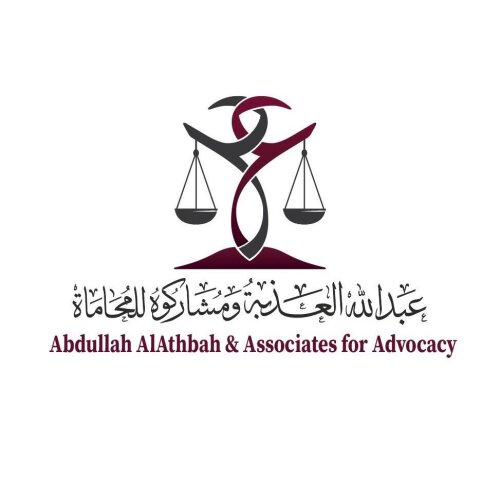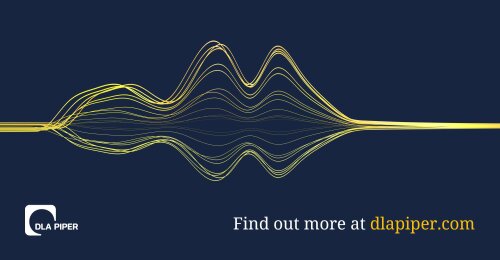Best Debt Capital Markets Lawyers in Doha
Share your needs with us, get contacted by law firms.
Free. Takes 2 min.
List of the best lawyers in Doha, Qatar
About Debt Capital Markets Law in Doha, Qatar
Debt capital markets (DCM) law in Doha, Qatar concerns the legal framework that governs the issuance, trading, and regulation of debt instruments, such as bonds, sukuk (Islamic bonds), and other securities by corporates, financial institutions, and governmental entities. These laws are essential for both issuers and investors who wish to raise or invest capital through non-equity instruments. The market is shaped by global best practices and is overseen by local regulatory authorities, primarily the Qatar Financial Centre Regulatory Authority (QFCRA) and the Qatar Financial Markets Authority (QFMA). Doha, as Qatar’s financial and commercial hub, sees many DCM activities, especially those aligned with Shariah principles, reflecting the nation’s commitment to both conventional and Islamic finance.
Why You May Need a Lawyer
Legal assistance is vital in the field of debt capital markets due to the complexity and significant financial implications involved. Some common scenarios where a lawyer’s guidance is crucial in Doha include:
- Structuring and executing bond or sukuk issuances
- Navigating cross-border or multi-jurisdictional debt offerings
- Ensuring compliance with both local and international regulatory requirements
- Reviewing and drafting offering documents, prospectuses, and disclosure statements
- Negotiating with underwriters, arrangers, and investors
- Addressing disputes related to debt instruments or defaults
- Understanding Shariah compliance for Islamic finance structures
- Managing regulatory inquiries or investigations
Professional legal advice can protect your interests, reduce risk, and facilitate successful transactions.
Local Laws Overview
Debt capital markets in Doha operate under a combination of national laws, QFMA rules, and, where businesses operate within the Qatar Financial Centre (QFC), QFCRA regulations. Key aspects include:
- Issuers must comply with local securities laws as set out by the QFMA and the Commercial Companies Law
- The QFC offers a distinct legal and regulatory environment for financial services, featuring its own regulator and court system
- All public offerings and private placements of debt instruments require regulatory approval and proper documentation
- Islamic debt instruments (sukuk) must adhere to Shariah principles as determined by qualified scholars and relevant authorities
- Disclosure and reporting requirements are mandatory for listed instruments
- There are specific rules on foreign participation, currency controls, and anti-money laundering for cross-border activities
Understanding these laws is critical to successful participation in Qatar’s debt capital markets, and legal advice ensures compliance at every stage.
Frequently Asked Questions
What types of debt instruments are commonly issued in Doha?
The most common instruments are corporate bonds, government bonds, sovereign sukuk, and Islamic corporate sukuk. Their features are tailored to meet both investor requirements and regulatory standards.
Is it possible for non-Qatari entities to issue debt in Qatar?
Yes, subject to specific regulatory approvals and compliance with local laws. The QFC framework is particularly favorable for international issuers.
What is sukuk and how does it differ from traditional bonds?
Sukuk are Islamic financial certificates similar to bonds but are structured to comply with Shariah, which prohibits charging interest. Instead, sukuk holders share in the profits and risks of an underlying asset.
What are the key regulatory bodies governing debt capital markets in Doha?
The primary regulatory authorities are the Qatar Financial Markets Authority (QFMA) for the public markets and the Qatar Financial Centre Regulatory Authority (QFCRA) for entities registered within the QFC.
Do DCM transactions in Qatar require approval from regulators?
Yes, all public issuances and certain private placements need prior approval and ongoing disclosure to the relevant regulatory bodies.
What are disclosure requirements for debt issuances?
Issuers must provide comprehensive disclosures in offering documents, including financial statements, risk factors, management details, and the nature of the instrument.
Are there restrictions on who can invest in Qatari debt instruments?
There may be restrictions, especially for foreign investors, depending on the instrument type, the market, and regulatory requirements.
How is Shariah compliance verified for Islamic debt instruments?
A Shariah board or approved scholars review and certify that the structure and underlying assets comply with Islamic finance principles.
What are the consequences of non-compliance with DCM regulations?
Non-compliance can lead to penalties, suspension of offerings, investor claims, or reputational damage. Severe cases may result in criminal charges.
Do issuers need ongoing legal support after a debt instrument is issued?
Yes, to ensure compliance with ongoing reporting, event disclosures, and to address any legal challenges or disputes that may arise during the life of the instrument.
Additional Resources
Several organizations and resources are available to support individuals and businesses involved in debt capital markets in Doha:
- Qatar Financial Markets Authority (QFMA) - Regulates securities issuance and market conduct outside the QFC
- Qatar Financial Centre Regulatory Authority (QFCRA) - Oversees financial activities within the QFC
- Ministry of Commerce and Industry - Provides business registration and regulatory guidance
- Qatar Stock Exchange - Primary marketplace for listing and trading debt securities
- Qatar Central Bank - Oversees monetary policy and sometimes issues sovereign debt
- Reputable law firms with dedicated capital markets practices
Next Steps
If you require legal assistance in debt capital markets in Doha, Qatar, consider the following steps:
- Identify your specific needs, whether issuing, investing, or resolving a dispute
- Look for experienced legal professionals or law firms specializing in capital markets or financial regulation
- Gather relevant documentation, such as contracts, offering materials, and correspondence
- Request an initial consultation to discuss your case and explore options
- Follow up with the selected legal advisor to ensure all regulatory and procedural steps are managed efficiently
Taking prompt action with qualified legal guidance can help you navigate the complexities of debt capital markets and safeguard your interests in Doha’s evolving financial landscape.
Lawzana helps you find the best lawyers and law firms in Doha through a curated and pre-screened list of qualified legal professionals. Our platform offers rankings and detailed profiles of attorneys and law firms, allowing you to compare based on practice areas, including Debt Capital Markets, experience, and client feedback.
Each profile includes a description of the firm's areas of practice, client reviews, team members and partners, year of establishment, spoken languages, office locations, contact information, social media presence, and any published articles or resources. Most firms on our platform speak English and are experienced in both local and international legal matters.
Get a quote from top-rated law firms in Doha, Qatar — quickly, securely, and without unnecessary hassle.
Disclaimer:
The information provided on this page is for general informational purposes only and does not constitute legal advice. While we strive to ensure the accuracy and relevance of the content, legal information may change over time, and interpretations of the law can vary. You should always consult with a qualified legal professional for advice specific to your situation.
We disclaim all liability for actions taken or not taken based on the content of this page. If you believe any information is incorrect or outdated, please contact us, and we will review and update it where appropriate.















